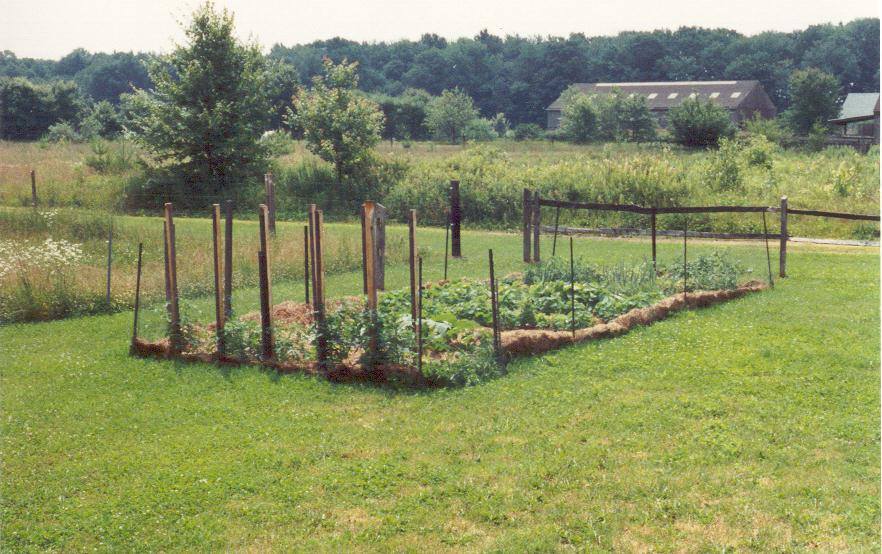
I’ve been using hay, NOT straw, for mulch since my first vegetable garden in 1992. I know a lot of people say not to use it, it causes weeds. But my experience has been, that if it is put down properly, there are no weeds at all.
I started using hay just because I did not want to weed. My mother had used this method for many years after she had read Ruth Stout’s book No Work Garden. That’s where I learned about it.
I much prefer to put the hours in mulching correctly in May when it’s cool than be weeding in the heat of July. In fact, I can’t weed in the heat, as I cannot control my body temp well due to Lyme disease. So this is a work around that has worked well for me for decades.
Most people try to save money or hay by shaking it out to make it go farther. This is the first HUGE mistake. If at all possible, hay should be left in the leaves as packed in a bale.
There are several reasons for this:
• A packed leaf of at least 4” thickness stops most weeds
• The standard sized bale gives you 2 sizes that will fit perfectly between an 18” row or a 2’ row
• A packed leaf will retain soil moisture far better
• Butted together tightly packed leaves do a far better job of soil coverage
• A packed leaf will last much longer
This is how hay mulch should be put down:
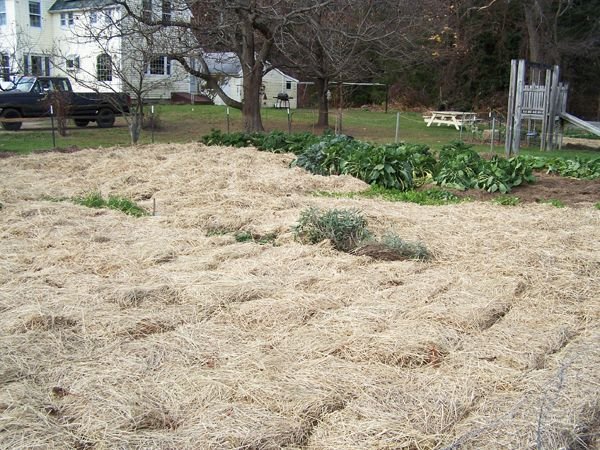
November 2012
This is how it will look the next spring:
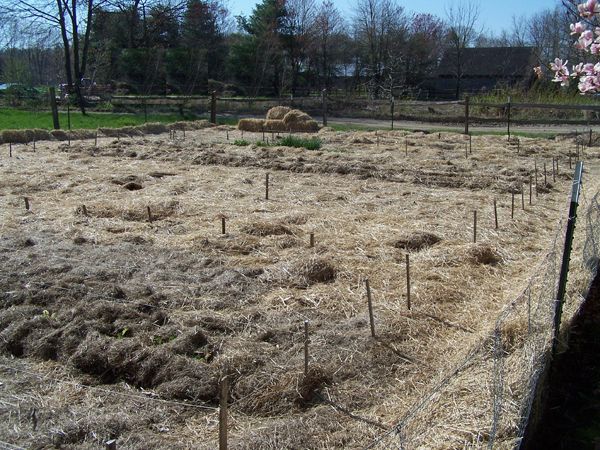
April 2013 – Not a weed in sight (those are chives in back)
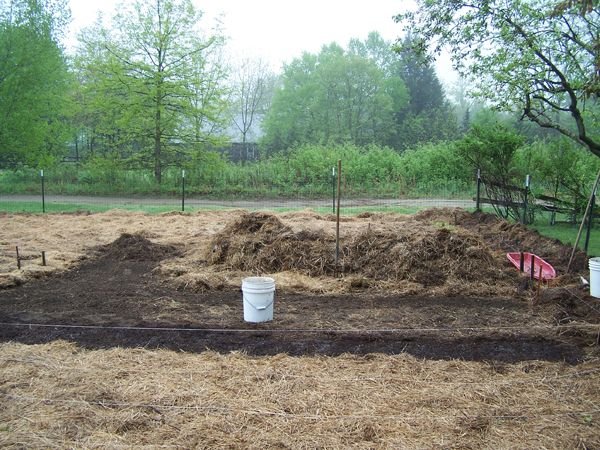
Rakings pile far left, leaves in center, loose stuff on right
To plant I remove all the mulch, carefully lifting and stacking the leaves so as not to break them apart. Put loose dry stuff in a separate pile. Then I rake up the loose wet stuff in another separate pile. You want to keep all dirt out of the leaves and dry loose stuff. Any dirt on the surface will allow seed sprouting. It’s also easier to plant seeds or dig in the soil without having to push through wet broken up hay.
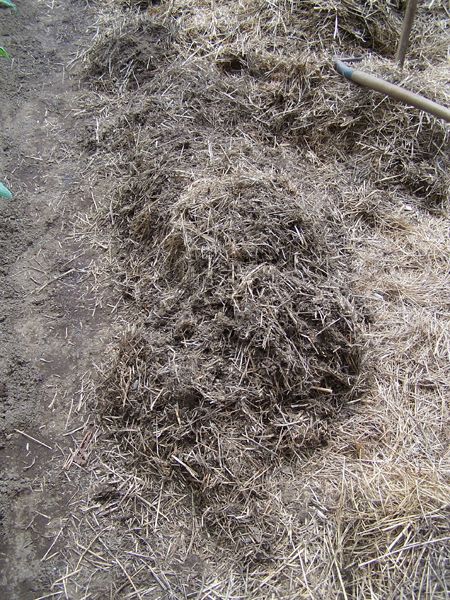
Rakings with dirt
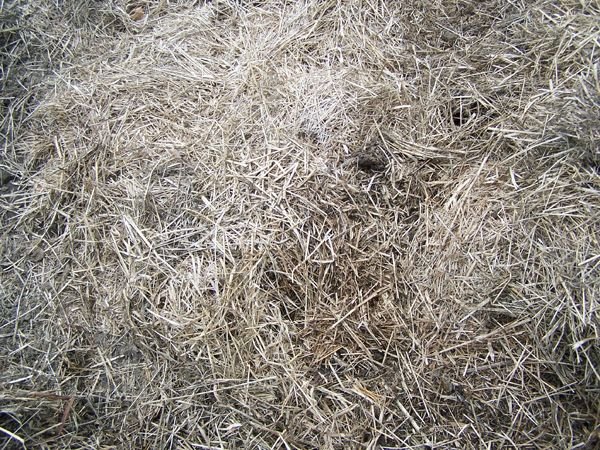
Loose dry hay, no dirt
Then I put down amendment, broadfork as needed, and use a rake with 2” tines to rake the amendments in, then plant.
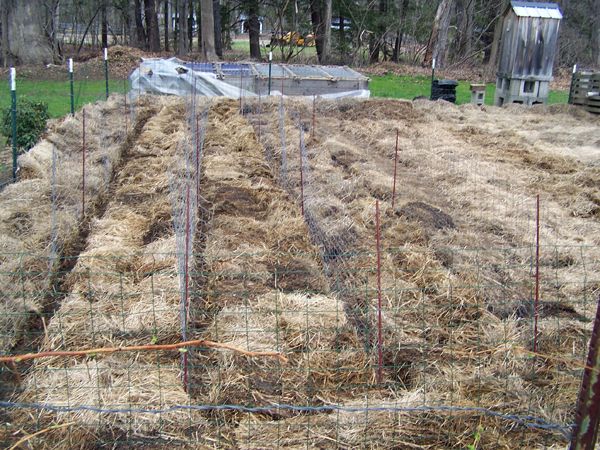
4” rows for peas and pea fence
If the plants are 4” or less apart as for peas, I simply mulch to 2” from the seed row on both sides. This leaves a 4” area for the plant to grow. Mulching up to or over the seeds will have the same effect on the seeds as it does on the weeds. So leave a 4” area for each plant.
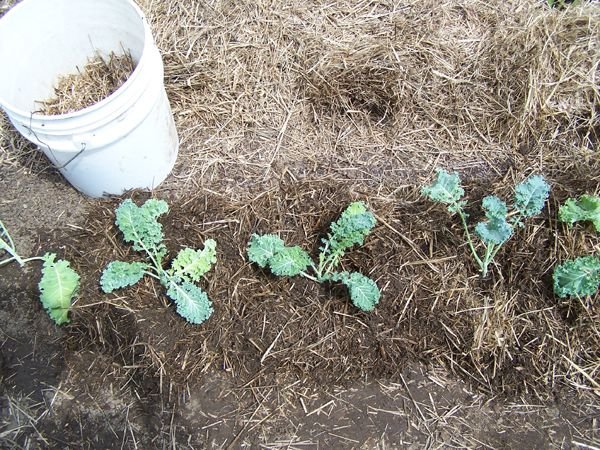
If they are farther apart I use the rakings first. I carefully put handfuls around each plant to a depth of 3”, leaving a 4” diameter area around the stem. These, if left like this, will sprout seeds very quickly.
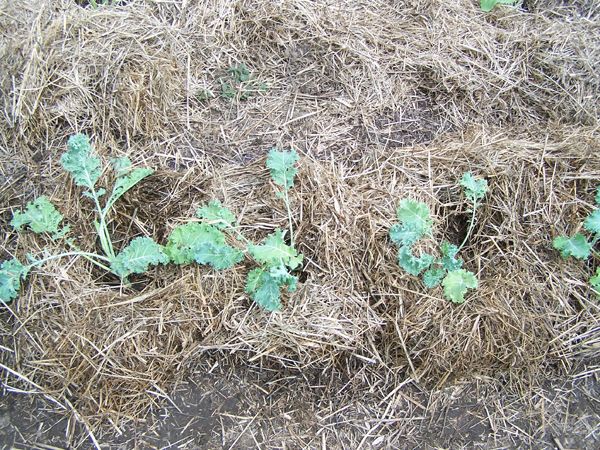
To prevent seed sprouting, I then put an inch or so of the dry loose stuff on top. This will prevent the sprouting.
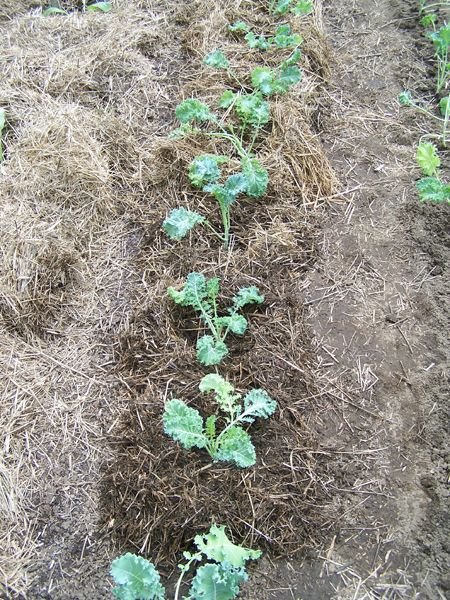
Here there’s dry loose at the top, and I’ve not yet put it around the lower plants.
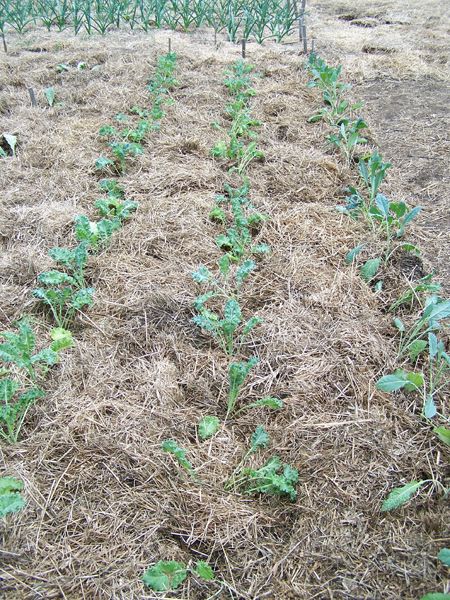
If the row is wide enough I will put a leaf of hay down between rows, overlapping the mulch collars a little. If not I put AT LEAST 8” of loose hay down between the rows. It will pack down to just under 4”. If you have rakings, 3” can go down first, then at least 5” of dry loose on top.
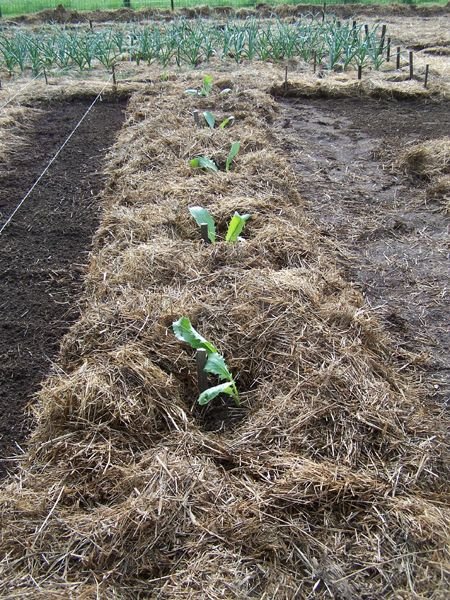
Row of artichokes, spacing 3’, all loose hay
To properly mulch both vegetable gardens takes about 150 bales of hay. If I do not mulch well in the fall, by spring there will be thousands of weeds because the worms work whenever it is warm enough, breaking down the hay. I have thousands of worms in these 2 gardens. Takes a lot to keep them fed.
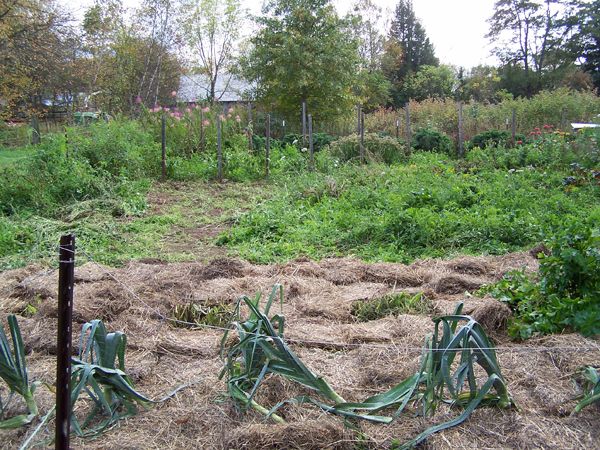
October 2017: clearing the weeds in the cover cropped area
I spend a lot of time sourcing free mulch hay. Some years I don’t have it, like last year. There was a drought the year before so hay was scarce. I had to use cover crop and the weeds got the best of me in it.
But it is very important to keep the soil covered either with cover crop or mulch at all times. It feeds the biology in the soil, it prevents erosion, and out here with our wind, it prevents the topsoil from blowing away.
.jpg)

The year before we used straw and this year we used hay on the main garden. We got the large round bales that are several years old and role them out on top of cardboard. It works great.
Downvoting a post can decrease pending rewards and make it less visible. Common reasons:
Submit
I have used round bales also. They are harder for me to use as my garden is fenced. They also aren't packed as thickly so you have to really pile it on. But free hay is free hay....
I have never used newspaper or cardboard in my organic garden. I worked in a box company for a while, don't want that in my food source...
Downvoting a post can decrease pending rewards and make it less visible. Common reasons:
Submit
This is great information. Thanks
Downvoting a post can decrease pending rewards and make it less visible. Common reasons:
Submit
this is awesome! thank you!
Downvoting a post can decrease pending rewards and make it less visible. Common reasons:
Submit